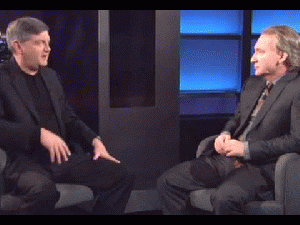Rob: That's great. So let me move into the book a little bit.
JR: Yeah.
Rob: A bit more than 25% of the way into the book you make a brief comment that I think represents much of what the book is about. You say, "During the war on terror, greed and ambition have been married to unlimited rivers of cash and the sudden deregulation of American national security to create a climate in which clever men could create seemingly rogue intelligence operations with little or no adult supervision. It is also the story of the potential abuse of power: how federal agencies, including the Defense Department and the FBI may have perverted the American legal system."
And a page later you add, "The years after the 9/11 attacks have been a time when it is often difficult to determine what is real-- and what is concoction."
JR: Yeah.
Rob: And the book just dives into that and gives such rich detail with getting us to know the people and the personalities and the agencies.
JR: Thank you, I'm glad you like it.
Rob: You know, and I've got to say, this is my job to follow this stuff...and there's a part of me that...it resists looking at books that talk about recent history because I've been following it every day; but what you've done brilliantly, which is why people who are in the business should be reading this book, is you pull the pieces together and add dimensions to it that are just superb.
JR: Well thanks.
Rob: And, for example, your next to last chapter is 'The War on Truth'...who knows what-- that could cover all kinds of ground, but what you do with it is you talk primarily about the war on whistleblowers and it is the NSA....now I've had...I've followed that war, following the discussion...the disclosures of Snowden and even had...I've had Tom Drake and Bill Binney on my show, interviewing them for many hours; and your chapter put it...the story into a bigger, much more comprehensive picture that was very helpful to me.
JR: Oh good.
Rob: And you've added in this story a new whistleblower for the first time, Diane Roark. Now that you've told her compelling story in your book, will you be writing about her in the New York Times? And were you blocked from writing about her before?
JR: No, I wasn't blocked from writing about her but I just found her to be...to me she's like my real hero out of all of this. I mean she's such a fascinating person, and I think the reason no one has heard about her before is she retired to rural Oregon. She kind of lives a very quiet life and is very shy, and never has really tried to talk much about herself before. But what she did was very courageous - you know, she was the house intelligence committees staffer on the NSA at the time of 9/11 and when she found out about the domestic spying operation from Bill Binney, she tried everything she could inside the government to stop it, and she never leaked to the press. But then when our story in the New York Times came out years later, because she had gone through the system and talked to people inside the government and told them she was troubled by it and she thought it was unconstitutional, the government immediately suspected she was our source and so they raided her house and persecuted her. And so it's just...to me it shows you how, you know, when all these people say 'oh, Edward Snowden should have gone through channels,' well she tried to go through channels, and she got her life turned upside down as a result.
Rob: Well, let's talk about Edward Snowden. What's your take on him?
JR: I think he's a...you know, he's a whistleblower. He is...I think he has had a really important impact on American society because he has shown the extent and the growth of the surveillance state. You know, what Eric Lichtblau and I did when in our stories about the NSA in the New York Times, we showed...we kind of showed the outlines and framework of the new domestic spying program that had been launched under Bush. I think what Snowden has done with the release of all these documents is to show how much that program had grown in the years since we first wrote about it. Because of the growth of social media and the digital presence of Americans online, and under the Obama administration, the NSA had exploded in its shadowing the growth of the digital presence of Americans, and I think that was the real value of what he's done.
Rob: Okay. Between Diane Roark and Senator Ron Wyden, who you talk about in your book, what is your conclusion about congress's ability to keep the security agencies -- CIA, NSA, FBI, Secret Service, etc. accountable -- and while we're at it, let's throw in the DOJ and the Whitehouse since they all seem to have been in collusion?
Next Page 1 | 2 | 3 | 4 | 5 | 6
(Note: You can view every article as one long page if you sign up as an Advocate Member, or higher).






